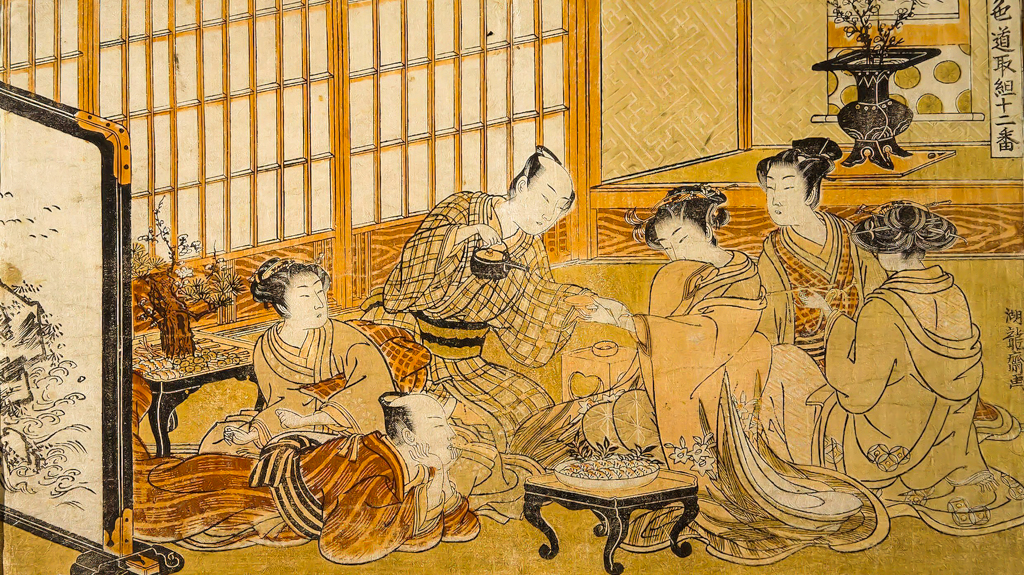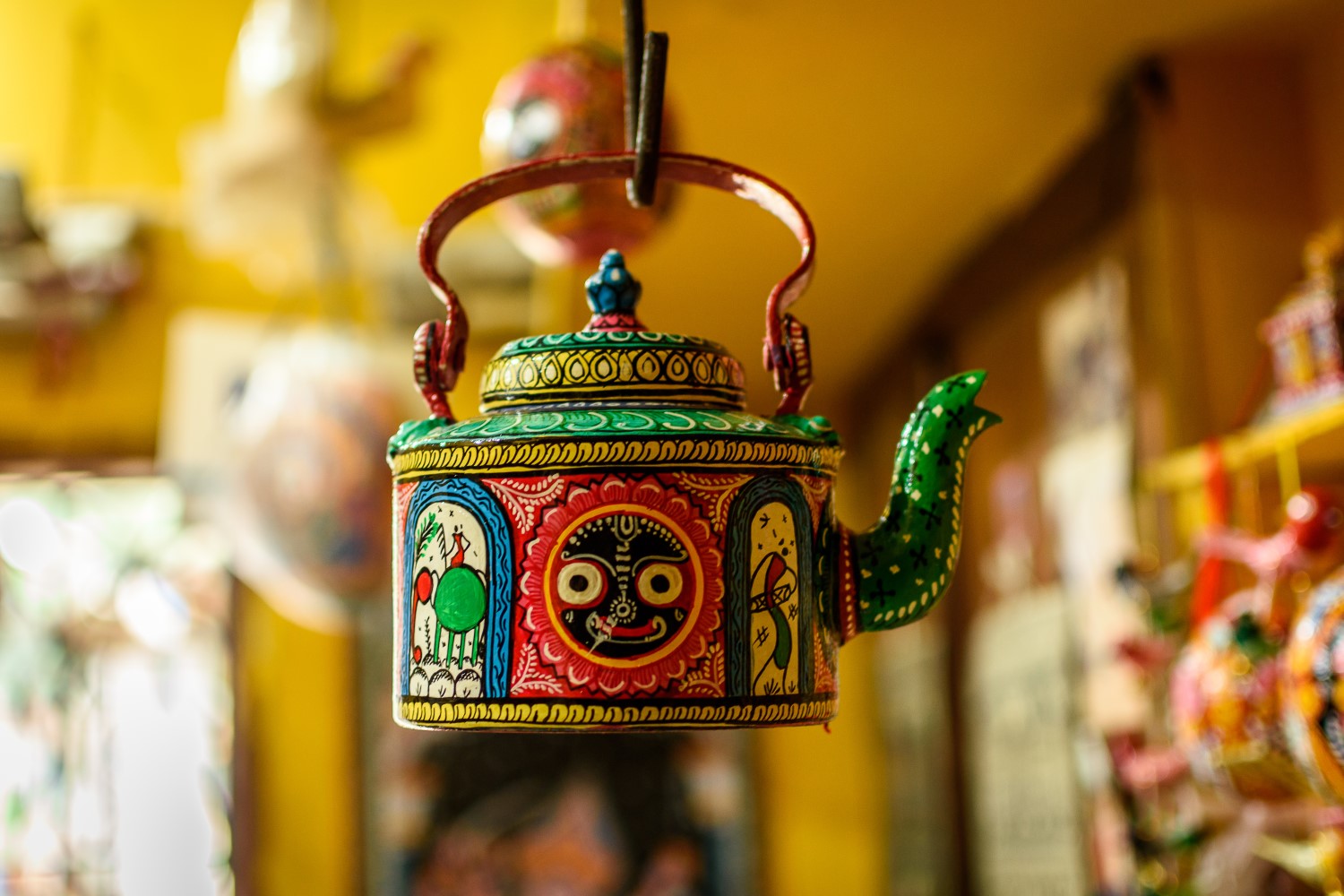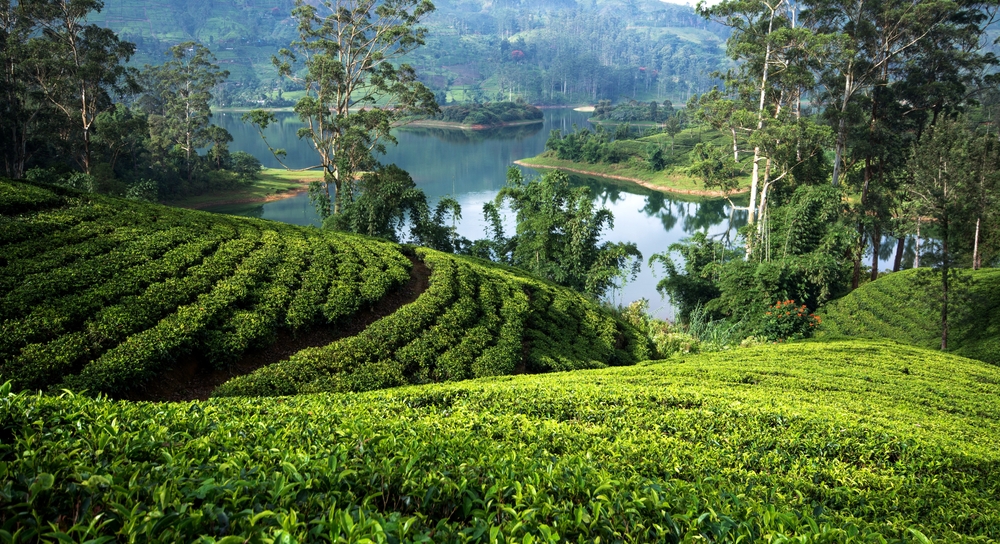Black Tea
Read MoreWhat Is Black Tea?
Black tea is a fully oxidised variety of tea, resulting in a deeper colour and a more robust flavour compared to green or white teas. Harvested from the leaves of the Camellia sinensis plant, it is renowned for its rich, malty, and sometimes fruity notes developed during the oxidation process.
Containing more caffeine than other teas but less than coffee, black tea is favoured by those seeking a moderate energy boost. It can be enjoyed plain or enhanced with milk, sugar, honey, or a slice of lemon, depending on personal taste.
Famous varieties of black tea include Assam, Darjeeling, Ceylon, and Keemun, each offering unique flavour profiles influenced by their region of origin. Notably, Ceylon black tea from Sri Lanka is celebrated for its bright, bold, and full-bodied taste that reflects its tropical growing environment.
1. The History of Black Tea
Black tea boasts a rich history spanning centuries. It originated in China during the Ming Dynasty when tea leaves were accidentally oxidised longer than usual, producing a darker and more robust brew. This new form of tea quickly gained popularity and journeyed along the Silk Road to Europe and beyond. In the 17th century, black tea became a cornerstone of British society, influencing customs like afternoon tea and even playing a role in historical events such as the Boston Tea Party. Delving into the history of black tea reveals how a simple leaf shaped global trade and cultural traditions.
2. Varieties of Black Tea
There is a diverse array of black teas, each with unique characteristics shaped by their growing regions and processing methods. Some of the most renowned varieties include:
- Assam: Originating from India's Assam region, this tea is known for its strong, malty flavour and deep amber hue. It's often used in breakfast blends due to its robust taste.
- Darjeeling: Grown in the Darjeeling district of India, often called the "Champagne of Teas," it offers a delicate flavour with floral and fruity notes that vary with seasonal harvests.
- Ceylon: Hailing from Sri Lanka, Ceylon black tea is prized for its bright, citrusy flavour and is commonly used in iced teas and blends.
- Keemun: A Chinese black tea featuring a mild, slightly smoky flavour with hints of fruit and pine.
Understanding these different types allows tea enthusiasts to appreciate the nuances and select varieties that suit their palate.
3. The Black Tea Production Process
The transformation from tea leaf to cup involves several intricate steps:
- Cultivation: Black tea thrives in specific climates and altitudes. Soil quality, rainfall, and elevation all influence its flavour profile.
- Harvesting: Typically hand-plucked to ensure only the finest leaves are selected, with the timing of the harvest affecting the tea's taste.
- Withering: Freshly picked leaves are spread out to reduce moisture content, making them pliable for further processing.
- Rolling: Leaves are rolled to break down cell walls, releasing essential oils and enzymes.
- Oxidation: This crucial step involves exposing the rolled leaves to oxygen, turning them dark and developing the characteristic flavours of black tea.
- Drying: The oxidised leaves are dried to halt oxidation and remove remaining moisture.
- Sorting and Grading: Leaves are sorted by size and quality, ready for packaging and shipment.
There are two primary processing methods:
- Orthodox Method: A traditional process that preserves the whole leaf, resulting in a more nuanced flavour.
- CTC Method (Crush, Tear, Curl): Produces small, uniform tea particles ideal for tea bags and quick brewing.
Appreciating the production process deepens one's understanding of the craftsmanship behind each cup of black tea.
4. Health Benefits of Black Tea
Black tea offers more than just comfort; it's associated with several health benefits:
- Antioxidant Rich: Contains polyphenols like theaflavins and thearubigins, which combat oxidative stress and may reduce the risk of chronic diseases.
- Heart Health: Regular consumption may lower LDL cholesterol and improve blood vessel function, potentially reducing heart disease risk.
- Digestive Aid: The tannins have a soothing effect on the digestive system and may enhance gut health.
- Mental Alertness: The caffeine and L-theanine content can improve focus and concentration without causing jitters.
- Blood Sugar Control: Some studies suggest it may improve insulin sensitivity, aiding in blood sugar management.
Incorporating black tea into your daily routine can contribute to overall wellness, but moderation is key.
5. Brewing the Perfect Cup
To fully enjoy black tea's flavour, proper brewing is essential:
- Water Quality: Use fresh, filtered water for the best taste.
- Temperature: Brew with water just off the boil, around 93–100°C.
- Tea Quantity: Generally, use one teaspoon of loose tea leaves per cup.
- Steeping Time: Steep for 3–5 minutes; oversteeping can lead to bitterness.
- Serving Suggestions: Enjoy it plain or add milk, lemon, or sweeteners to suit your preference.
Avoid common mistakes like using boiling water directly or oversteeping, which can result in a bitter brew.
6. Black Tea Recipes
Black tea is versatile and can be incorporated into various recipes:
- Classic Preparations:
- Masala Chai: A spiced Indian tea combining black tea with spices like cinnamon, cardamom, ginger, and cloves, simmered with milk and sweetened to taste.
- Iced Tea: Ideal for hot days, brew strong black tea, sweeten if desired, and serve over ice with a lemon slice.
- Modern Twists:
- Tea-infused Desserts: Incorporate black tea into cakes, cookies, or ice cream for unique flavours.
- Cocktails: Use black tea as a base in drinks like a Tea Martini or Bourbon Sweet Tea.
Experimenting with black tea in recipes adds depth and complexity to culinary creations.
7. Black Tea vs. Green Tea
Though both originate from the same plant, they differ significantly:
- Processing: Black tea is fully oxidised; green tea is minimally processed and not oxidised.
- Flavour: Black tea has a robust, bold flavour, while green tea is lighter and more vegetal.
- Caffeine Content: Black tea generally contains more caffeine.
- Health Benefits: Both are rich in antioxidants but differ in types; black tea has theaflavins and thearubigins, green tea contains catechins like EGCG.
Understanding these differences helps in choosing the tea that best suits your taste and health preferences.
8. Cultural Significance of Black Tea
Black tea holds a special place in various cultures:
- British Traditions: Afternoon tea is a quintessential British custom featuring black tea served with scones, sandwiches, and pastries.
- Chinese and Indian Customs: Integral to social rituals and hospitality, often prepared in traditional ways.
- Australian Tea Culture: Reflecting British influences and local customs, tea drinking is a common social activity.
Exploring its cultural significance reveals black tea's role in bringing people together and influencing social practices.
9. Decaffeinated and Flavoured Black Teas
For those sensitive to caffeine or seeking variety:
- Decaffeinated Black Tea: Undergoes a process to remove most caffeine, retaining much of its flavour.
- Flavoured Black Teas: Black tea serves as a base for many flavoured teas, such as:
- Earl Grey: Infused with bergamot oil for a citrusy note.
- Vanilla or Caramel: Adding sweetness and aroma.
- Fruit Infusions: Blended with fruits like cherries, oranges, or berries for a fruity twist.
These options provide alternatives to suit different tastes.
10. Selecting and Storing Black Tea
To enjoy the best flavour:
- Selecting Quality Tea:
- Loose Leaf vs. Tea Bags: Loose leaf often offers superior quality.
- Check for Freshness: Look for vibrant, aromatic leaves without staleness.
- Storage Tips:
- Airtight Containers: Store in airtight, opaque containers to protect from light, air, and moisture.
- Cool, Dry Place: Keep away from heat sources and strong odours.
- Shelf Life: While it doesn't spoil, black tea can lose flavour over time; consume within a year for best taste.
Proper selection and storage ensure each cup is as flavourful as possible.
11. Black Tea and Weight Management
Black tea may support weight management efforts:
- Metabolism Boost: The caffeine can slightly increase metabolic rate, aiding calorie burning.
- Fat Oxidation: Some studies suggest it enhances the body's ability to break down fats.
- Gut Health: Polyphenols may promote healthy gut bacteria linked to weight regulation.
Incorporate black tea into a balanced diet and exercise routine for potential benefits.
12. Environmental and Ethical Considerations
Consumers are increasingly mindful of production practices:
- Sustainable Farming:
- Organic Practices: Avoiding synthetic pesticides and fertilisers.
- Biodiversity: Supporting ecosystems within tea plantations.
- Fair Trade:
- Ethical Labour: Ensuring fair wages and working conditions.
- Community Support: Investing in local communities through education and healthcare.
- Environmental Impact:
- Carbon Footprint: Reducing emissions through efficient production methods.
- Packaging: Using recyclable or biodegradable materials.
Choosing teas that prioritise sustainability and ethics contributes positively to the environment and society.
13. Black Tea in Beauty and Wellness
Beyond drinking, black tea offers benefits in beauty and wellness:
- Skin Care:
- Antioxidant Masks: Applying cooled black tea can reduce inflammation and promote a healthy complexion.
- Anti-ageing: Antioxidants may help combat signs of ageing.
- Hair Care:
- Natural Dye: Enhances hair colour and shine, especially in dark hair.
- Strengthening Rinse: May strengthen strands and promote growth.
- Aromatherapy:
- Stress Relief: The soothing aroma can be calming and is used in wellness practices.
Incorporating black tea into beauty routines offers natural alternatives to commercial products.
14. Potential Side Effects and Precautions
While generally safe, consider the following:
- Caffeine Sensitivity: Excessive consumption may lead to insomnia, increased heart rate, or anxiety.
- Iron Absorption: Tannins can inhibit iron absorption from plant-based sources; it's advisable to drink tea between meals.
- Medication Interactions: May interact with certain medications; consult a healthcare professional if unsure.
Moderation is essential to enjoy black tea's benefits while minimising side effects.
15. Economic Impact of Black Tea
Black tea significantly influences the global economy:
- Major Producers: Countries like India, China, Sri Lanka, and Kenya are leading exporters.
- Employment: The industry provides jobs for millions worldwide.
- Market Trends: Growing demand for premium and specialty teas influences global trade patterns.
Understanding its economic importance highlights black tea's impact beyond just a beverage.
16. Black Tea Accessories and Gift Ideas
Enhance the experience with the right accessories:
- Tea Sets:
- Traditional: Porcelain or ceramic sets for a classic feel.
- Modern Designs: Sleek, contemporary teapots and cups.
- Infusers and Strainers: Essential for brewing loose leaf tea.
- Gift Packs:
- Assorted Teas: Curated selections of different black teas.
- Tea and Treats: Pairing teas with biscuits, jams, or chocolates.
- Subscription Boxes: Monthly deliveries of new and exciting black teas.
These make thoughtful gifts and elevate the tea-drinking experience.
17. Black Tea and Technology
Innovation is shaping black tea's future:
- Cultivation Techniques:
- Precision Agriculture: Using technology like drones and sensors to monitor crops and optimise farming.
- Production Efficiency:
- Automated Processing: Improving consistency and reducing labour.
- E-commerce:
- Online Retail: Easier access to a wide variety of black teas globally.
- Digital Marketing:
- Social Media Engagement: Connecting with customers through engaging content and virtual tastings.
Embracing technology helps the industry meet modern demands while preserving quality.
Learn More About Black Tea

The Origins of Black Tea
Explore the rich history of black tea, from its accidental discovery in China to its global influence on trade and culture.
Read More
Flavours of Indian Black Tea
Indian black tea is known for its robust flavours, aromatic profiles, and rich history, cultivated in regions like Assam, Darjeeling, and Nilgiri.
Read More
Rich Flavours of Ceylon Black Tea
Explore the history, tea regions, grading system, and health benefits of Ceylon black tea. Learn how to brew the perfect cup and enjoy its unique flavours.
Read More
Heritage of Chinese Black Tea
Learn about the history, grading system, and varieties of Chinese black tea. Discover its unique flavours and health benefits.
Read More







